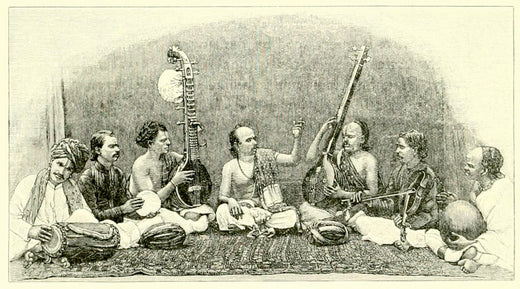
The History of Music in Society
Share
Music has been a cornerstone of human culture for millennia, evolving alongside societies and serving as a mirror of their values, emotions, and history. From the ancient rhythms of early humans to the digital streaming platforms of today, the role of music in society has continuously shaped and reflected human development. This essay delves into the history of music, exploring its social significance, cultural influence, and economic impact, supported by key statistics.
The Origins of Music
-
Primitive Beginnings: Music is believed to have originated around 40,000 years ago. Archaeological discoveries, such as bone flutes found in Europe, suggest early humans used music in rituals and communication. Rhythmic drumming and vocalizations likely formed the earliest musical expressions.
-
Music in Ancient Civilizations:
- In Mesopotamia, the Sumerians documented music as early as 3100 BCE, using it in religious ceremonies.
- The Egyptians incorporated music into religious practices and social celebrations, with instruments such as harps and lutes.
- In ancient Greece, music played a vital role in education and philosophy. Greek philosophers like Plato considered music essential for cultivating moral character.
Music in the Middle Ages and Renaissance
-
Sacred and Secular Divide:
- During the Middle Ages (500-1400 CE), sacred music dominated. Gregorian chants were widely used in Christian liturgies, becoming the foundation of Western classical music.
- Secular music, such as troubadour songs, reflected themes of love, war, and storytelling, becoming popular among the general populace.
-
Renaissance Innovations (1400-1600):
The Renaissance brought a surge of musical creativity, with composers like Josquin des Prez and Palestrina advancing polyphony (multiple melodic lines). Instruments like the violin and piano were developed, laying the groundwork for modern orchestras.
Music in the Modern Era
-
The Classical Period:
- The 18th century ushered in the Classical era, defined by balance and structure. Composers such as Mozart and Haydn emphasized harmony and melody, with Beethoven bridging the Classical and Romantic periods.
-
Romanticism and Emotion:
The Romantic period (19th century) saw music become a vehicle for emotional expression. Composers like Chopin and Wagner conveyed themes of love, nationalism, and individualism, using larger orchestras and dramatic compositions. -
The Rise of Popular Music:
- In the 20th century, genres such as jazz, blues, rock, and hip-hop emerged, each representing distinct social movements and cultural identities.
- The Beatles and Elvis Presley revolutionized pop music, while Bob Dylan and Nina Simone used music as a tool for civil rights advocacy.
Music in Society Today
-
Cultural Reflection:
- Music remains a powerful cultural tool, shaping identities and connecting people worldwide. Genres like hip-hop address social issues, while K-pop has become a global phenomenon.
- Streaming platforms such as Spotify and Apple Music make music accessible to billions, with over 616 million paid music streaming subscribers worldwide as of 2024.
-
Economic Powerhouse:
- The global music industry generated $26.2 billion in 2023, according to the IFPI (International Federation of the Phonographic Industry).
- Live music events, such as Coachella and Glastonbury, contribute billions to local economies annually.
-
Therapeutic Benefits:
Music therapy has gained widespread recognition for reducing anxiety, improving mental health, and aiding in physical rehabilitation. A 2023 study revealed that 89% of patients undergoing music therapy reported improved emotional well-being.
Key Statistics on Music’s Influence
- 90% of people listen to music daily, according to Nielsen's global music survey.
- The music streaming market is expected to grow at a CAGR of 17.8% from 2023 to 2030.
- Babies exposed to music in the womb exhibit advanced auditory development, according to studies.
- 76% of respondents in a Spotify survey said music helps them build stronger social connections.
- The live music industry generated over $10 billion in revenue in the U.S. alone in 2022.
Conclusion
The history of music is a testament to its enduring significance in human society. From ancient rituals to global streaming, music has evolved to reflect the emotions, values, and aspirations of each era. It is more than an art form; it is a universal language that transcends cultural and social boundaries. Understanding music\u2019s historical role enriches our appreciation of its power to inspire, heal, and connect humanity.
